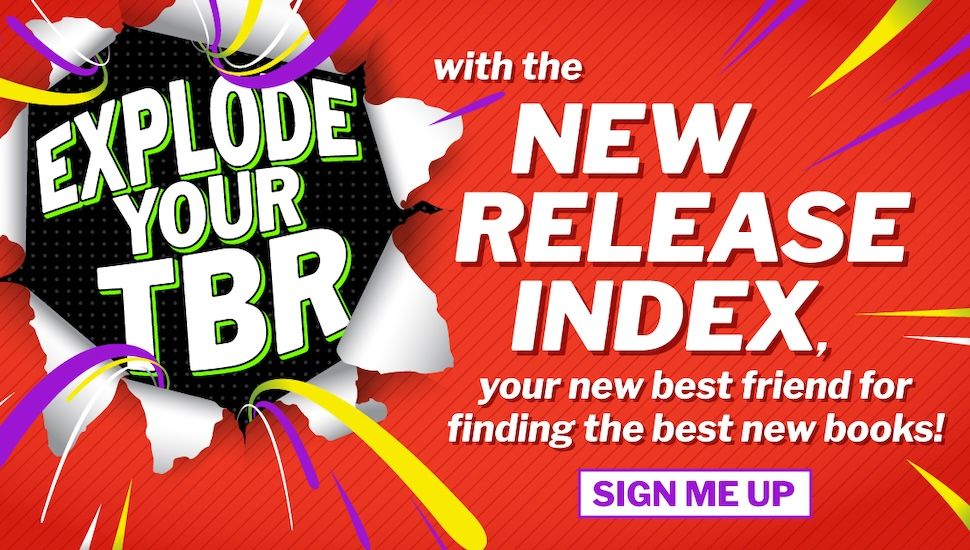
How My ADHD Diagnosis Changed My Relationship with Self-Help Books
Time and time again, I have swum desperately towards a new system or idea that might just help me this time, only to discover it’s a patch of seaweed, not a life raft. There is much speculation that self-help books don’t work anyway, but navigating my neurodiverse (ND) reality means that things others can simply do aren’t as straightforward for me.
As I learn to accept my diagnosis, I’m also learning how to reframe my relationship with progress, improvement, and productivity. In discovering more about how my brain works, I’m also discovering just why these books haven’t worked for me in the past, and how to find a new way forward.
When Your Brain is a Tornado
For as long as I can remember, I have been forgetful. My mind is a steel trap for facts like Henry Purcell‘s birth and death dates (1659–1695). But for the life of me, I can never remember doctor’s appointments on my own. I lose an important item daily. If it’s not interesting enough to completely capture my attention, I will forget what you say almost immediately after you say it. Meetings are fun.
Without outside accountability, I will not finish a project. With outside accountability, I will procrastinate longer than you even thought possible. In college, I wrote more than one paper in fewer than 20 minutes. I can’t recall ever getting my car’s registration tags updated in a timely manner. I am late (and I wish this was an exaggeration) a full 95% of the time. Even though I’ve been working remotely and the only places I really have to be right now are Zoom meetings.
All of these behaviors, I now know, are common symptoms of ADHD. All of these behaviors are commonly targeted by the self-help industry. Want to be on time? Try these books! Sick of procrastinating? These’ll tell you how to stop! Looking to improve your memory? Try this on for size!
Rejection Sensitive Dysphoria
Self-help books are written for a neurotypical audience. They are not written for people with executive function disorders. When you have an executive function disorder, no amount of “tricking” yourself into something will ever change the neurological makeup of your brain. Following the organizational systems set up by someone whose brain literally works differently than yours will never work.
Because these books are billed as cure-alls to the evils of laziness, procrastination, and unproductivity, when you are ND trying to follow their guidelines, you will inevitably fail, setting off a spiral of shame that ADHD folx know all too well. Why can’t I finish anything? What’s wrong with me? I’ll never amount to anything. It’s so simple, yet I can’t do it, no matter how hard I try. I must be stupid.
This shame spiral is really familiar to most people with ADHD, because one of the most common symptoms is Rejection Sensitive Dysphoria (RSD). Put simply, RSD is an extreme aversion to rejection (either from others or your own expectations) due to the emotional reaction it causes. People with RSD tend to internalize rejection, and begin to avoid situations that could cause any sort of rejection because of their sensitivity towards it.
The tendency towards self-blame, and the accompanying extreme emotional flare up, only perpetuates the cycle of blame in treatment. Instead of seeking tools that would work with my thought patterns, I sought to change them, because I had been taught all my life that the way I thought was “wrong.” I further internalized that message, becoming more and more determined to “fix” myself.
The Stigma Against Diagnosis
The crucial piece of why I sought out self-help books instead of professional treatment is this: I was ashamed. I was sure that this embarrassing pattern of “try-fail-shame-try again” was the result of a moral failure on my part. If I found the right book, I could finally get my life together and stop living my life in fear of my own stupid mistakes.
I wasn’t diagnosed with ADHD until I was an adult, a fact that in and of itself is more surprising than it should be. As a white cis woman with access to doctors versed in adult ADHD, I’m actually lucky. Executive function disorders tend to interact with systemic racism, classism, and gender identity bias* in predictable ways. ADHD is also almost exclusively associate with children. ADHD was listed as a “disruptive disorder for children” in the Diagnostic and Statistical Manual (DSM) until 2013. Fun fact: achieving adolescence does not magically rewire your brain into a neurotypical one.
*Please note: studies show that trans and nonbinary individuals are more likely to have ADHD or Autism Spectrum Disorder, but that is not necessarily indicative of a causal link, nor is it evidence that something is “wrong” with trans or nonbinary individuals.
These intersecting biases and stigmas ultimately work against people with ADHD getting the help that they actually need. Because so many of the behaviors seem simple and treatable on the surface, they shouldn’t cause such ongoing issues, right? When in fact, more often than not, they can spiral into more destructive outcomes that lead to more incorrect diagnoses.
What Actually Helps?
The hard truth I have had to learn in this: I will never not be this way. My brain will always struggle to sort and prioritize information. I will never be able to force myself to pay attention without outside tools. While researching this article, I felt familiar waves of self-loathing and fatigue that have, again and again, accompanied my attempts to better myself. The truth is, I don’t need to change my brain to be better. I need to change my habits to work with my brain better.
If working with my brain was like building a house, for 27 years I was trying to renovate a concrete house with wood and nails. Now that I know my house is different, I can seek out the tools (like yoga, dialectical behavioral therapy, or appropriate medication) that can change my house.
Looking back, I can see the books that actually helped me worked because I could adapt their message to me, not the other way around. The Life Changing Magic of Tidying Up resonated with me because the basic rule is this: keep only what you love. My rebellious brain had full permission to keep only the wacky and wonderful, without having to remember a lot of complicated rules that would only lead to my self-loathing. Also, I hate clutter because it only adds to the pile of nonsense in my mind.
My diagnosis has been, in many ways, a huge relief. Free to pursue my life in my own way, I now work towards self-acceptance rather than self-flagellation. While I still struggle with RSD and organization, I’m already on a path to healing my relationship with myself. This understanding has transformed my life more than any self-help book ever could.
If you want to learn more about ADHD, check out this list of books to read.













